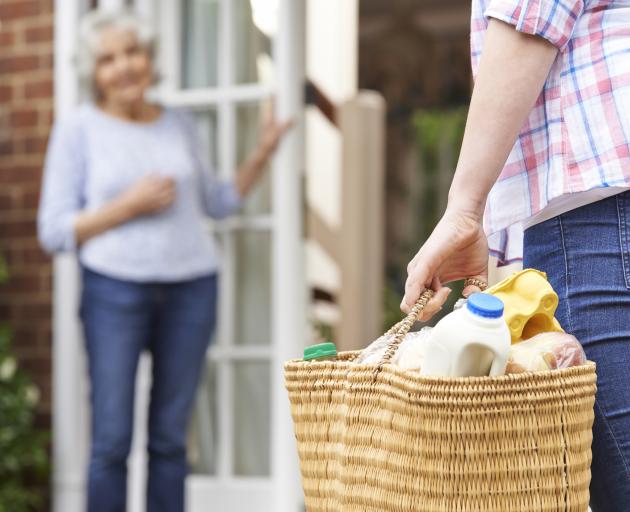
Kindness can make a real impact, and not just for those on the receiving end, says Jan Aitken.

While chatting with friends I was reminded of the movie Pay it Forward. It’s a good few years old now. If you don’t know of it or don’t remember it, here’s a brief outline.
Pay it Forward is the story of an American social studies teacher who gives an assignment to his junior high school class.
They are to think of an idea to change the world for the better and then put it into action.
One young student creates a plan for "paying forward" favours, and when he implements his idea he not only affects the life of his struggling single mother, but he sets in motion an unprecedented wave of human kindness.
Very shortly after reminiscing about the movie I received a post on Twitter about kindness and that got me thinking.
What is kindness and why is it important to us as human beings?
Simply, kindness can be described as extending help or care and/or behaving well towards others. Showing gentleness and warmth, taking time to connect.
There’s a lot of research from the positive psychology movement that shows caring about, and extending kindness to, others actually improves the health and wellbeing of the giver and the receiver.
Even caring for pets and plants can have similar health benefits for the giver.
In the 1970s Dr Ellen Langer and Dr Judith Rodin conducted research that suggested elderly folk in rest-homes lived longer if they had their own pot plants to care for rather than staff looking after the plants.
If you’re on the receiving end of an act of kindness it’s not hard to understand why you feel good and how that in turn is good for your wellbeing.
But why would being kind be good for the giver?
It seems those feel-good neurotransmitters I wrote about in my last column (Feeling Scientific, October 8) are once again to the fore!
When we genuinely give to others, the areas in our brain associated with pleasure, social connection and trust are activated.
The feel-good neurotransmitters are released, the giver feels good and is therefore more inclined to be kind again.
As philosopher Eric Hoffer said "we are made kind by being kind".
If that’s the case then kindness is something we learn by doing, not just by thinking about it!
Being kind strengthens our connections with others. It builds trust and support, a sense of co-operation that builds wellbeing not just for individuals but for society in general.
Recent research into brain functioning has confirmed that we are hard-wired for love and compassion.
So it’s not all about chasing individual success: our communities and society flourish when people look out for each other.
Kindness can be as simple as a smile, a thankyou or a word of encouragement.
It’s a way of connecting, even if only for a brief moment, with those we pass in our daily lives.
It doesn’t have to cost anything or take much time, what’s important is that it’s an act of genuine care and thoughtfulness for another person.
Kind acts can be spur-of-the-moment. For example, we might give up our seat on the bus or pick up and return someone’s glove when they drop it.
Opportunities to be kind pop up all over the place, like handing on a newspaper we’ve finished reading, or by letting someone with only a few items to buy go in front of you at the supermarket.
However, acts of kindness can be planned in advance: you can plan to do something for a friend, neighbour or loved one just because you want to spread some joy.
There doesn’t have to be a reason and you may never know what it really meant to that person.
There are unlimited ways to be kind to others: you only need to keep your eyes open and pay attention to those around you to start seeing opportunities to help.
To be kind, it’s important for us to be aware of the people around us, and to notice their needs and feelings.
Novelist Henry James wrote: "Three things in human life are important. The first is to be kind; the second is to be kind; and the third is to be kind."
So go on, spread a little kindness!
- Jan Aitken is a Dunedin-based life coach.
For more go to www.fitforlifecoaches.co.nz.
Twitter:@jan—aitken
Practising kindness
Here are some ideas for practising kindness from a great website, www.actionforhappiness.org
1. Plan for kindness: Do some thinking about what you might do to spread some kindness, then you’re more likely to spot opportunities when they come up. Make yourself a list of small actions you could take in your daily life, they don’t have to cost any money at all. Think about people you know and others that you pass by in the course of the day. What could you do today or tomorrow? What do you feel drawn to doing?
2. Have a kindness day: On a particular day, perhaps once a week, try to perform at least five different acts of kindness for different people. Make these things that you wouldn’t ordinarily do. Afterwards, think: How did you feel after you did each act? How do you feel at the end of the day?
3. Do it together: Try to think about kind things you could do with friends, family or neighbours. You can swap ideas and support each other. Doing new things together helps build connections, which also increases happiness, so it’s a win all round. If you’ve got children, get them thinking about what they can do too. Ask them what kind acts they gave or received that day. They might share some lovely stories with you!











